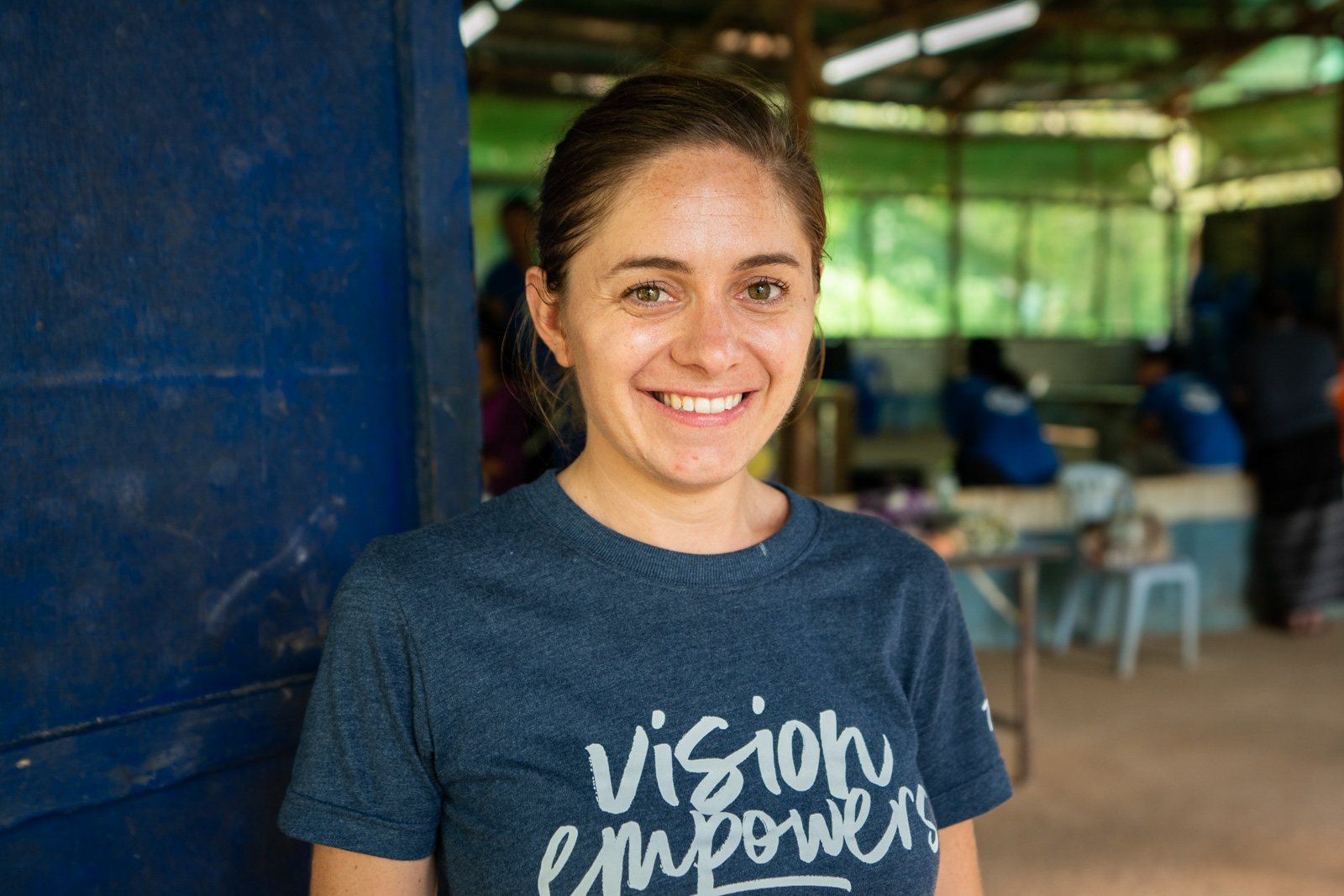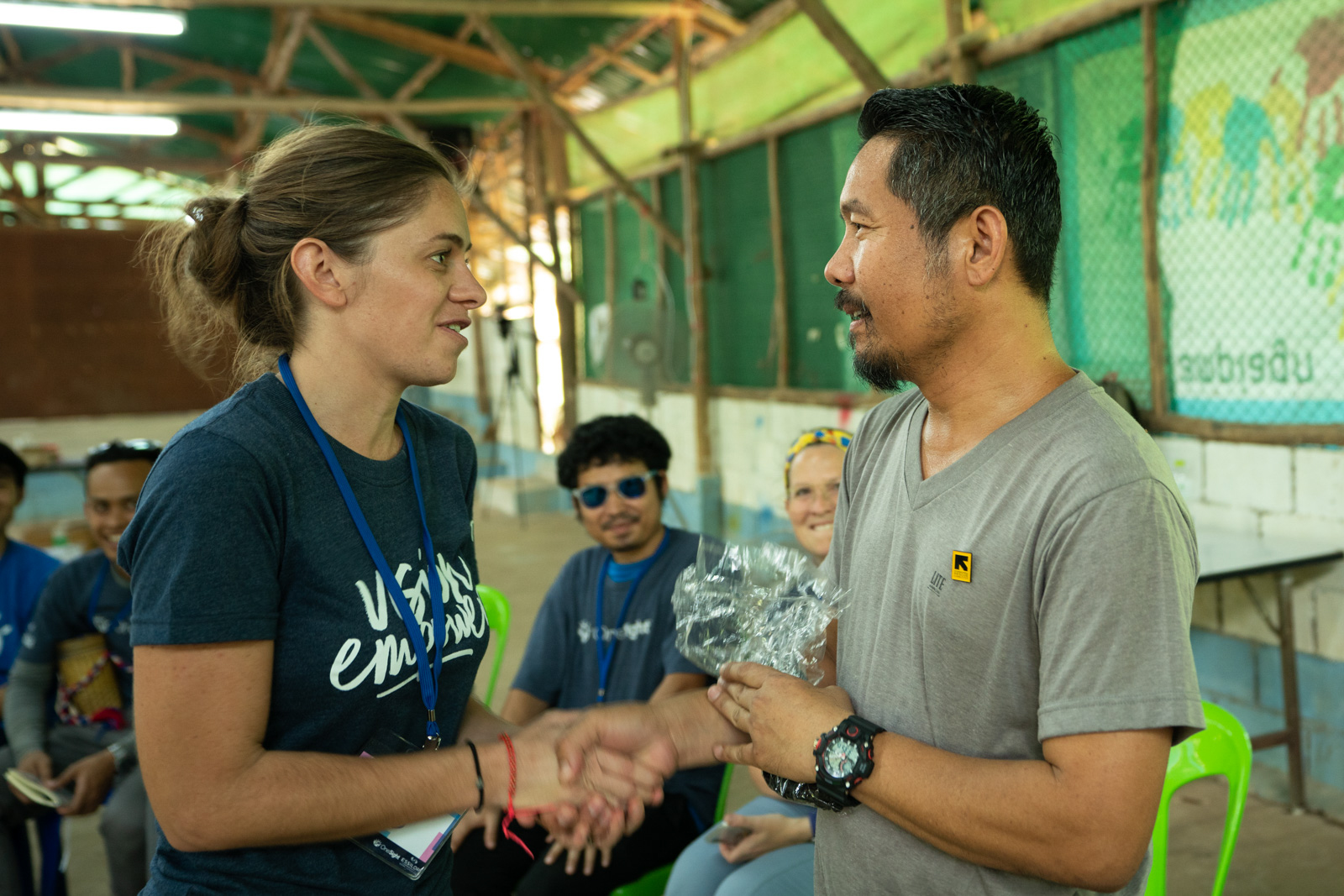Working in a global organization will always demand a degree of cross-cultural understanding. And when working for OneSight, whose efforts dozens of countries, being culturally aware is essential. Our team has to frequently adapt their familiarized approaches to suit the needs of others. They have to educate themselves on the areas in which we serve – which sometimes requires leaping into the unknown & learning by experience.

We asked OneSight’s Manager or Programming for South and Southeast Asia, Maud Zeller, to share how she’s overcome cultural barriers while working at OneSight. Maud oversees a large portion of our work in Asia and was recently named one of the 2019 IAPB Eye Health Heroes for her tremendous efforts to bring vision care access to those in the region. She’s incredibly passionate about helping those in great need and is willing to go the extra mile to ensure that everyone, no matter their background, has access to an eye exam and a pair of glasses.
What are some examples of barriers you run into while planning for or running international clinics that stem from cultural differences?
Sense of time is different. While we would love to plan and know everything in advance, sometimes clinic information comes in at the last minute. We’ve had to learn to plan A to Z in order to quickly react and adapt our decisions without changing our main goal. When possible, I try to ensure that I have 1 day set aside without a schedule to allow for shifts if something changes. And if all goes as planned, I can then use that extra time to get a feel for the community we’re serving or spend additional time with our partners on-the-ground.
Language. The way we construct sentences, the speed in which we talk or even our tone of voice. I have learned that communicating cross-culturally is easier when using simple words, speaking less directly and more softly, and when I ask the same thing in different ways. As an added precaution, I always follow up any discussion I have in-person with an email to make sure we haven’t misunderstood each other.
Clearly articulating what we do so that people can understand the level of detail needed for planning and success. I always come with a printed presentation to explain what is it that we do – clinic flow, patient flow, picture of our equipment, what a busy day looks like, how we organize a typical day – you name it! Anything that helps the person listening to better understand what we do so they know how they can help us.
When preparing a team for a clinic, how do you prepare them for culture shock and/or the cultural differences they may experience?
We have a series of 3 separate phone calls with the team, in which we go over:
1. The big picture: Pictures, Video, Provide context why are here in the first place? Why did we choose this place? What is our connection? Who is the partner and how do we work together? What is our goal in the mid or long term? Hence why the role you play is helping build this strategy.
2. What to expect: Pictures of the environment.
3. Behaviour: Dos and don’ts

What are some of the challenges you’ve faced/observed with a team of multicultural volunteers?
You need to mix them as much as you can and that starts with who is sharing a room with whom on the mission. You also need to make sure you allow people to change clinic stations and be with different people. We typically try to set smaller goals on day 1 and day 2 (on the number of patients served) to allow the team to have room to learn the environment, pick up new skills or get to know each other.
What is the most challenging aspect of working across cultures?
Expectations and immersion into a new culture. I would say it’s more challenging to manage someone who likes to know all the details vs. someone who is happy with just knowing the big picture. We all have different ways of travelling and experiencing a culture, so a challenging aspect of our role is to make sure that our entire team has what they’re looking, which requires compromises when travelling with a large group.
What is the most rewarding aspect of working across cultures?
We all want the same thing at the end: love and happiness – neither of which should be left behind. But our background, history, where we were raised – has led us to approach the same goal in different ways. For me, this is fascinating and I really like to spend time getting to know the people I work with and how they came to do what they do. What they have learned and what their advice is to address a certain challenge. Working across cultures has taught me to look at things from different angles and that itself has taught me a lot.